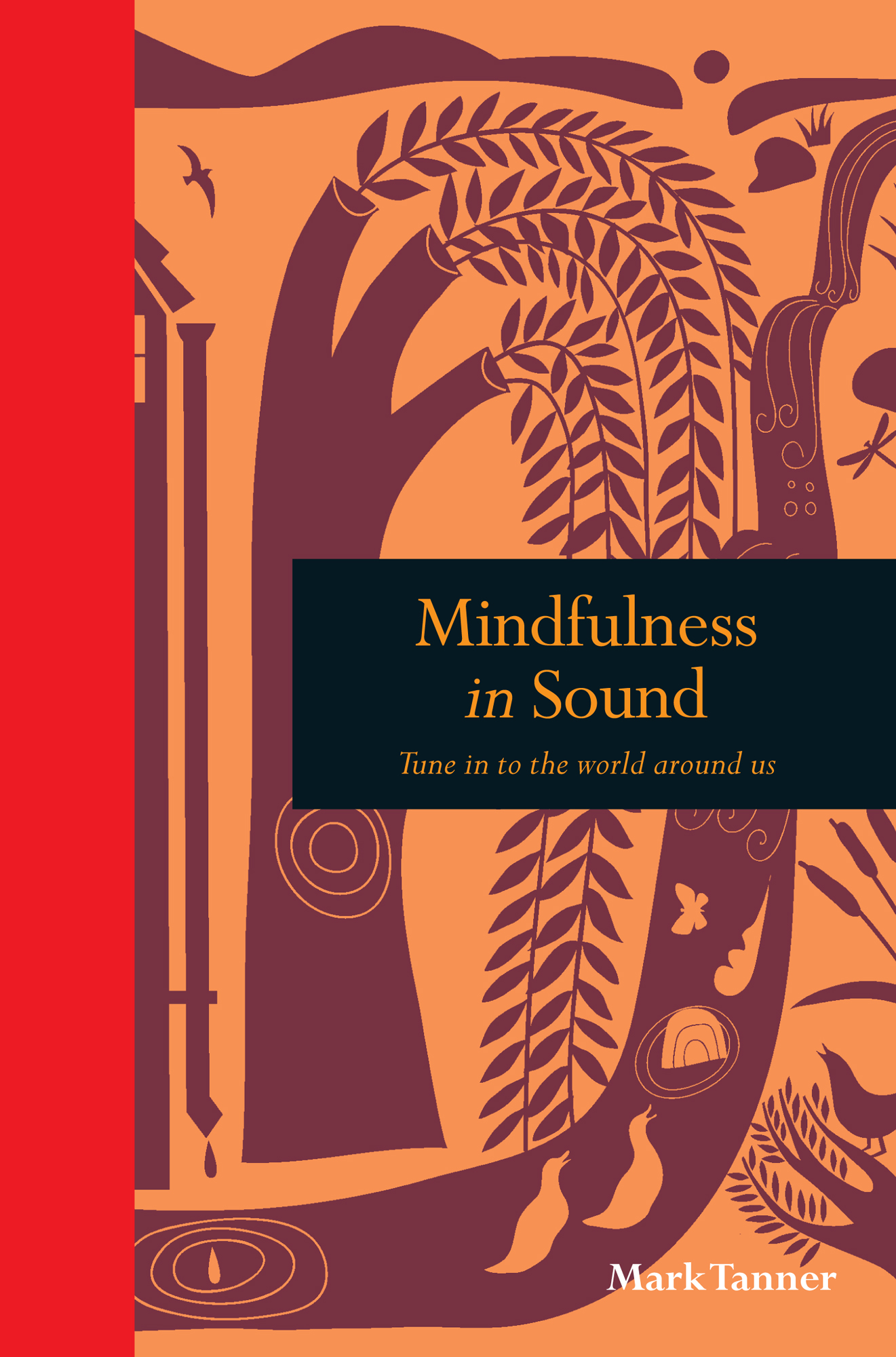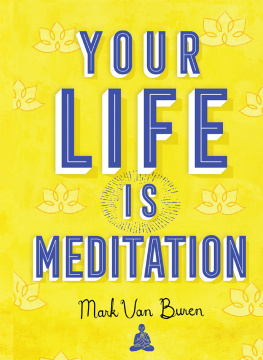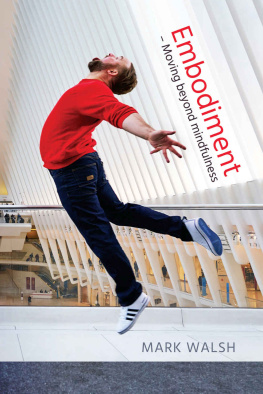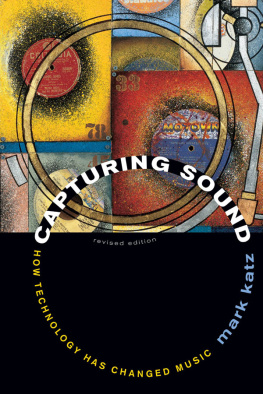Mark Tanner - Mindfulness in Sound
Here you can read online Mark Tanner - Mindfulness in Sound full text of the book (entire story) in english for free. Download pdf and epub, get meaning, cover and reviews about this ebook. year: 2020, publisher: Leaping Hare Press, genre: Romance novel. Description of the work, (preface) as well as reviews are available. Best literature library LitArk.com created for fans of good reading and offers a wide selection of genres:
Romance novel
Science fiction
Adventure
Detective
Science
History
Home and family
Prose
Art
Politics
Computer
Non-fiction
Religion
Business
Children
Humor
Choose a favorite category and find really read worthwhile books. Enjoy immersion in the world of imagination, feel the emotions of the characters or learn something new for yourself, make an fascinating discovery.

- Book:Mindfulness in Sound
- Author:
- Publisher:Leaping Hare Press
- Genre:
- Year:2020
- Rating:3 / 5
- Favourites:Add to favourites
- Your mark:
- 60
- 1
- 2
- 3
- 4
- 5
Mindfulness in Sound: summary, description and annotation
We offer to read an annotation, description, summary or preface (depends on what the author of the book "Mindfulness in Sound" wrote himself). If you haven't found the necessary information about the book — write in the comments, we will try to find it.
Mindfulness in Sound — read online for free the complete book (whole text) full work
Below is the text of the book, divided by pages. System saving the place of the last page read, allows you to conveniently read the book "Mindfulness in Sound" online for free, without having to search again every time where you left off. Put a bookmark, and you can go to the page where you finished reading at any time.
Font size:
Interval:
Bookmark:

OTHER TITLES IN THIS SERIES:
The Art of Mindful Baking
The Art of Mindful Birdwatching
The Art of Mindful Gardening
The Art of Mindful Reading
The Art of Mindful Silence
The Art of Mindful Singing
The Art of Mindful Walking
Einstein and the Art of Mindful Cycling
Galileo and the Art of Ageing Mindfully
Happiness and How it Happens
The Heart of Mindful Relationships
The Joy of Mindful Writing
The Mindful Art of Wild Swimming
The Mindful Man
Mindful Crafting
Mindful Pregnancy and Birth
Mindful Travelling
Mindfulness and Compassion
Mindfulness and Music
Mindfulness and Surfing
Mindfulness and the Art of Drawing
Mindfulness and the Art of Managing Anger
Mindfulness and the Art of Urban Living
Mindfulness and the Journey of Bereavement
Mindfulness and the Natural World
Mindfulness at Work
Mindfulness for Black Dogs and Blue Days
Mindfulness for Students
Mindfulness for Unravelling Anxiety
The Mindfulness in Knitting
The Practice of Mindful Yoga
Zen and the Path of Mindful Parenting

Tune in to the world around us
Mark Tanner

First published in the UK and North America in 2020 by
Leaping Hare Press
An imprint of The Quarto Group
The Old Brewery, 6 Blundell Street
London N7 9BH, United Kingdom
T (0)20 7700 6700
www.QuartoKnows.com

Text 2020 Mark Tanner
Design and layout 2020 Quarto Publishing plc
All rights reserved. No part of this book may be reproduced or transmitted in any form or by any means, electronic or mechanical, including photocopying, recording, or by any information storage and retrieval system, without written permission from the copyright holder.
British Library Cataloguing-in-Publication Data
A catalogue record for this book is available from the British Library
Digital edition: 978-1-78240-998-4
Hardcover edition: 978-1-78240-997-7
This book was conceived, designed and produced by
Leaping Hare Press
58 West Street, Brighton BN1 2RA, United Kingdom
Publisher D AVID B REUER
Art Director J AMES L AWRENCE
Editorial Director T OM K ITCH
Commissioning Editor M ONICA P ERDONI
Project Editor J OANNA B ENTLEY
Design Manager A NNA S TEVENS
Designer G INNY Z EAL
Illustrator M ELVYN E VANS

Sound unites us all. And yet, sound is only real for those with ears to hear it. Every sound needs an attentive listener, or its as if its not happening, like a small child pirouetting beautifully in a park, unobserved by anyone else. Sound is a symptom of something physical that is occurring, or has already occurred, whether this be a bird pecking at a nut or its echo reverberating down an alleyway. Once weve become receptive, sound instantly switches to being something unmistakably vivid, yet seconds earlier it had passed us by unnoticed. When sound and meditation intertwine, our journey into mindfulness begins.


Sound is detonating all around us. And in between, we have the blessing of silence, less commonly found but equally beautiful. Though sound mostly comes to us free of charge, its capacity to inform us, move us and stir us into action is priceless.
S OUND, LIKE LIGHT, HAS LIMITLESS FREQUENCIES , and with it an inexhaustible capacity for stirring our emotions. Just as white light is a spectrum of colours that have come together as one, white noise is where every conceivable sound frequency converges into a constant, ambient sound. Though white noise, such as air conditioning, can aid sleep or block out a loud voice nearby, it can also be a valuable tool for meditation. But mindfulness is not about pretending the world is without its distractions; we can learn to harness sound, in all its complexity and mystical power, so that we become more focused, aware and alive to the moment.
Without perhaps realizing it, our environment continually resonates, buzzes and chimes, however aloof or distant from its source we may be. But all this eager hullabaloo is easily squandered if our ears lag behind its beat. When we spot something happening nearby, we instinctively turn our eyes in its direction, raise an eyebrow, tilt our head to sharpen our focus. But noticing doesnt need to be a visual response; it can equally be auditory. The echo of a door slamming will comfortably outlive the nanosecond it took us to watch it happen. A fanfare of car horns tells us more in a split second than staring fixedly at a row of taxis inching their way down a gridlocked street. And the sound of a waterfall will live on in the aural memory far more vividly than its mental photograph. For this reason, we may recognize a human voice many years after we last heard it even a voice that might to others seem unremarkable. Its distinctive timbre seeps into our subconscious and could be ready to return to us in an instant, just when we least expect it.
We commonly speak of overlooking something not seeing it, or else not seeing its value and yet this presupposes it is our capacity for sight that has been allowed to lapse. For a person practised in mindfulness on the other hand, sound or perhaps the very absence of it amounts to more than a personal sensation playing itself out somewhere in the brain; it is the medium through which meditation most easily begins. This is why Buddhists use bells to help them meditate not to dull the senses, but to draw their minds deeper and closer to their spirituality.
Being alert to sound is the easiest thing in the world, yet we so quickly take it for granted. The more amorphous and flowing a sound is, the more helpful it will be when it comes to harnessing our breathing, slowing down our private world and becoming aware of each passing nanosecond. It can almost seem that time itself has its own distinctive sound.

We may think we can see a sound source because of its influence on a nearby physical object, such as a table vibrating on a moving train or a marquee buffeted in a gale. But the sensation of hearing a sound is not the sound itself, nor is observing with our eyes the effect of whatever it was that created the sound.
W E OFTEN SAY THAT SOMETHING resonates with us, strikes a chord or rings a bell, when what we really mean is that we sense a connection beyond what may be visible or audible to others around us. Whether in response to a sound or not, this goes further than dj vu; it may feel otherworldly or purely instinctive and then, just like the sound of breaking glass, its gone again in an instant.
Font size:
Interval:
Bookmark:
Similar books «Mindfulness in Sound»
Look at similar books to Mindfulness in Sound. We have selected literature similar in name and meaning in the hope of providing readers with more options to find new, interesting, not yet read works.
Discussion, reviews of the book Mindfulness in Sound and just readers' own opinions. Leave your comments, write what you think about the work, its meaning or the main characters. Specify what exactly you liked and what you didn't like, and why you think so.






